Americans can easily point to where democracy is failing them. But for most, finding solutions isn’t so obvious.
For most Americans, problems that loom largest are gerrymandering, money in politics, and the heightened pitch of partisan bitterness. Matthew Yglesias laid out the case October 16 for how the voting system proportional representation could “save America.” The system, he says, gerrymander-proofs elections, keeps those elected honest and accountable to voters, and discourages us-against-them party politics.
Proportional representation could help save American democracy (and might save Canada—and British Columbia—as a first step). And it could be the best democracy fix Americans don’t even know they want.
Even if the solutions are unfamiliar, Americans agree on what’s broken. A supermajority of Americans wants the Supreme Court to rein in partisan gerrymandering, including 80 percent of Democrats, 68 percent of Independents and 65 percent of Republicans.
The vast majority in the US—84 percent—believe money has too much influence in politics. In 2016, 93 percent of voters said elected officials listen more to wealthy donors than regular voters. A hefty majority of Americans—77 percent—support limiting how much money individuals and organizations can spend on campaigns. Most Americans want to kill Citizens United, too, including 66 percent of Republicans and 85 percent of Democrats. Sixty-four percent of Americans said they wanted Trump to pick a Supreme Court justice who would “limit the amount of money corporations and unions can spend on political campaigns.”
Most Americans, despite all the us-against-them partisan venom, actually think things work better when the parties work together. That notion can also draw apathetic citizens into the conversation. Views that the American system of government needs far-reaching reforms are more widespread among those with lower levels of engagement: 60 percent of those with a moderate level of engagement say this, along with 71 percent of those who are relatively unengaged with politics.
But what to do? Even given the dismal outlook on US democracy doesn’t float electoral system upgrades to top of mind. While Pew found that many Americans still think US democracy is working okay (only 18 percent say it’s working very well), nearly two-thirds think it needs significant changes to its fundamental design and structure. When Pew asked respondents to compare the US political system with those of other developed nations, fewer than half rated it “above average” or “best in the world.”
But how many Americans know what sweeping changes to make? Or that most democracies in the world use proportional representation? Not many. Even fewer consider it a sure bet to protect elections against gerrymandering.
Ah, but when they do hear a bit about the options out there, Americans prove to be open-minded.
Gallery: What do Americans want to fix about democracy?
Take the experiment with Ranked-Choice Voting in Maine. RCV is what it sounds like: rank the candidates on your ballot in order of your preference. When voters in Maine heard that RCV puts power back into the hands of voters and makes elected officials earn true majority support, they went for it. They liked the idea so much they voted for it—twice. First to adopt it and again to keep it. From towns like Santa Fe, New Mexico, to Portland, Maine, and other cities in the US, to countries like New Zealand, voters who experience better election systems don’t choose to switch back.
Polling by the University of Maryland’s Program for Public Consultation found majority support for three reforms (that most Americans have probably never heard of): Ranked-choice Voting, multimember districts, and citizen redistricting commissions. These three reforms together make up proposed US legislation called The Fair Representation Act. This proportional system with multi-member districts appealed to over 70 percent of respondents—and support held strong across party lines. The appeal is that elected representatives would accurately mirror the partisan balance in their state. The balance would force them to be more accountable to voters, not special interests, and make sure voters in the minority or in a safe district aren’t consistently ignored and left out. As Jamie Raskin, a co-sponsor of the Fair Representation Act and a representative from Maryland put it, “Forty percent of the votes in your state should mean 40 percent of the seats in Congress or your state legislature, not 40 percent of the votes means zero percent of the seats.” This logic has popular appeal.
Public attitudes on these ideas won’t change much until more leaders like Raskin—and more states like Maine—are drawing public attention to alternatives to the current majoritarian, winner-take-all setup. Evidence from the public opinion testing we have—and ample polling showing Americans want an upgrade to their democracy—suggests that US voters are receptive. If they knew about it, they might even find inspiration in British Columbia’s push to switch from an American-style system to a proportional system.
Demanding change is a first step many Americans are eager to take. The next is letting voters know the solution has a name: proportional representation.

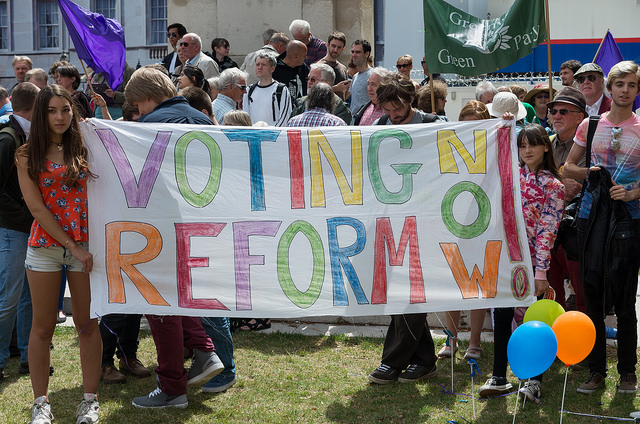
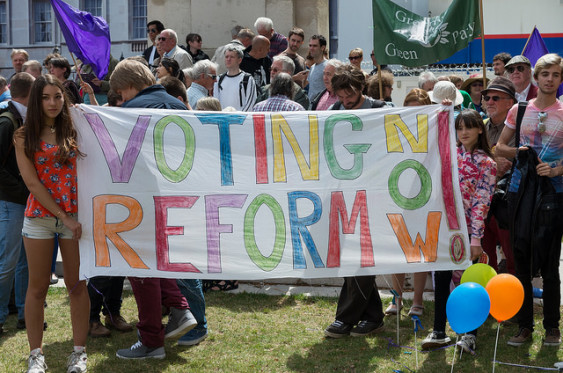

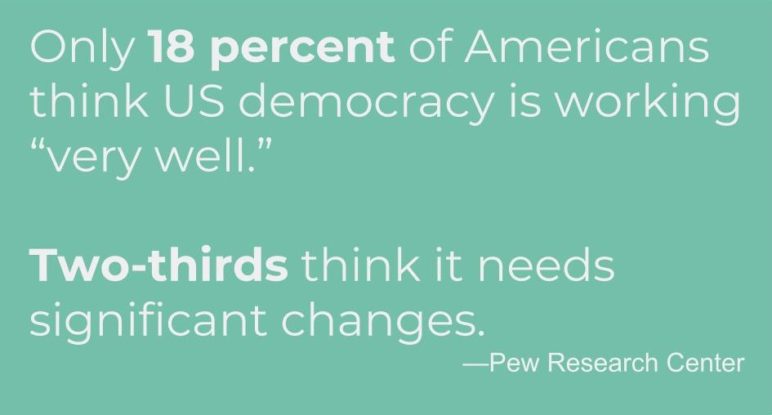
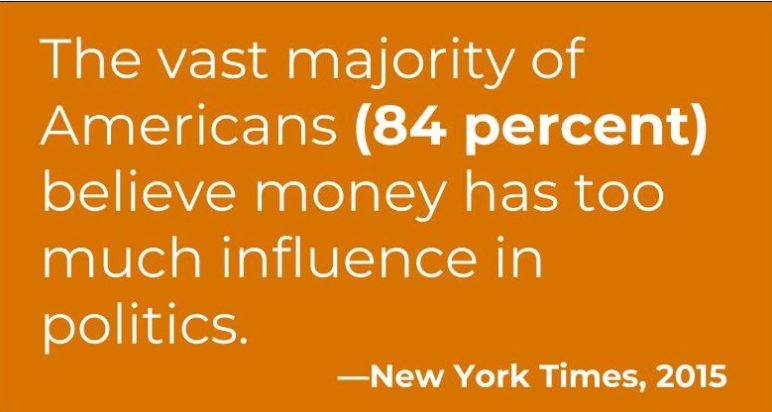
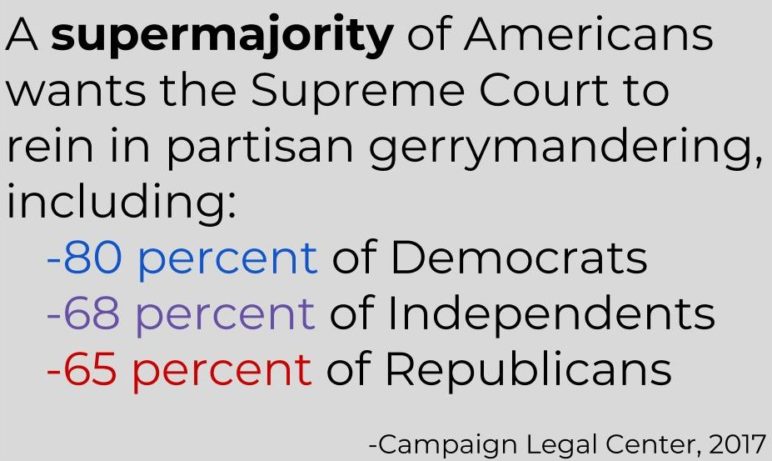
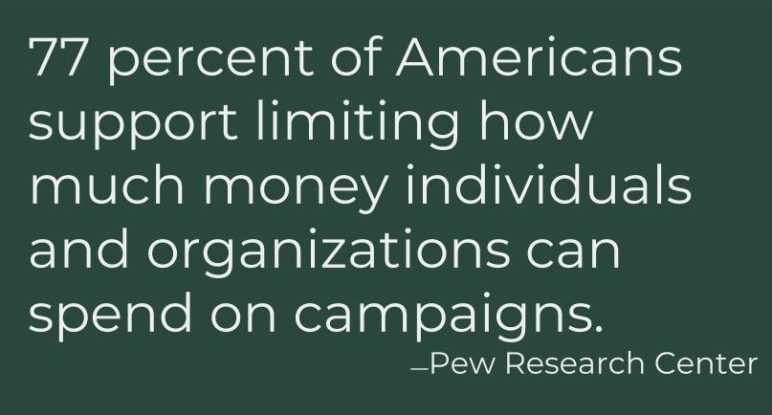
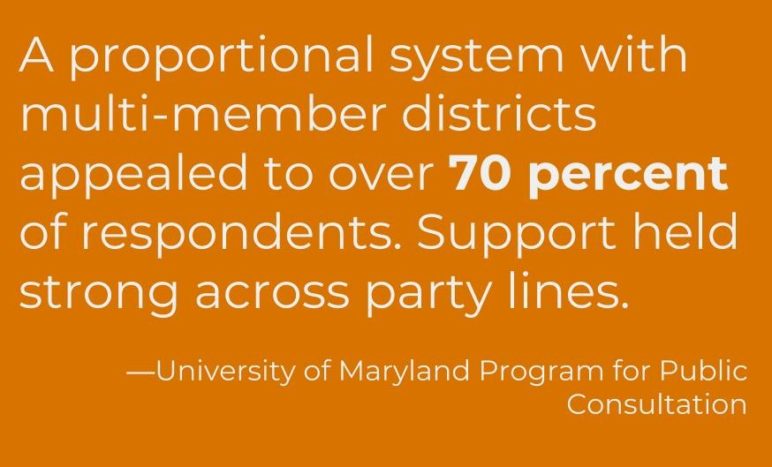






Lee Mortimer
Proportional representation could indeed be “the best democracy fix Americans don’t even know they want.” And it should be remembered that ranked-choice voting (RCV) is not the only way to do PR. RCV has proved its viability, but mostly in local, single-jurisdiction elections. The challenge begins when RCV is extended across multiple autonomous election jurisdictions that often use different types of voting equipment.
The proposed “Fair Representation Act” in Congress could just as easily use multi-member elections with other PR methods. Those include limited voting and cumulative voting, which have been widely used to resolve voting rights disputes. Others include “open list” or “open ticket” voting, as used in Finland, and “mixed-member proportional” (MMP) elections, as used in Germany, New Zealand and the devolved parliaments of Scotland and Wales. The Dual-member proportional (DMP) election system, one of the options in the British Columbia referendum, also merits consideration.
All of these alternatives achieve the same goals as RCV but are simpler, less expensive — and most importantly — can be implemented with little or no change to existing voting machinery. They should be given the consideration they deserve.
Warren
Fairvote.org has an excellent example of RCV for multi-winners such as all representative in a state or all seats on a city council.